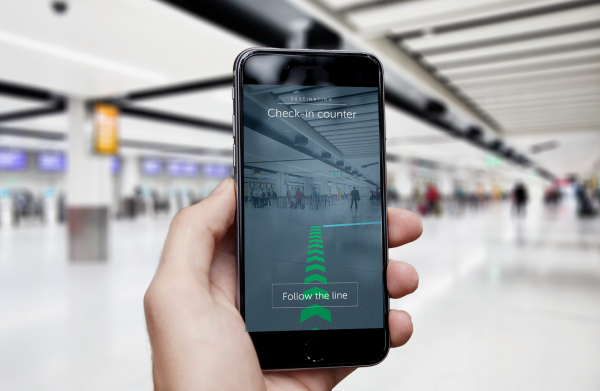Tracking Monster Demo with ARKit →
Rainforest Garage Demo with ARKit →
Armada Demo with ARKit →
Airplane Demo with ARKit →
Overwatch Character Demo with ARKit →
Zombies with ARKit Demo →
Apple's ARKit: The World's Largest Augmented Reality Platform in the World, Overnight →
I see a common obstacle for Microsoft, Google and Facebook's entrances into AR. I expect they will all struggle to incentivize enough developers to build a vibrant ecosystem.
Google's Project Tango has been around since 2014, and it is almost universally considered a flop. Project Tango only works on specialized hardware that relatively few people own, and because of that, the software landscape is bleak.
Microsoft's HoloLens was announced in early 2015, and it's really quite impressive by all accounts. But it's not really a consumer product. The HoloLens starts at $3,000 and is marketed as a developer edition. At this point, they have too few users to truly attract developers in large numbers. Obviously, this could change dramatically if they announce a truly revolutionary consumer device.
Facebook's AR Studio is only a few months older than AR Kit, and Facebook has 2 billion users. But at this point, Facebook isn't offering a way for developers to monetize their AR Studio creations. This means it will be filled with AR "apps" that are essentially ads for companies that monetize in other ways.
In the fall, Apple will update their iPhone line and hundreds of millions of iOS devices being used today will be updated to iOS 11 and capable of running ARKit apps. This is serious incentive, and I expect to see a cascade of AR-enabled apps in the App Store at the end of the year.
This is exactly why Apple's stubborn approach to top-to-bottom proprietary/integrated technology pays off.
While everyone else gets bragging rights for beating Apple to market, Apple focuses on becoming first to mainstream adoption.
Bike Ride Map Demo with ARKit →

Indoor Navigation at Gatwick Airport via Bluetooth Beacons →
The UK’s second busiest airport, Gatwick, has opted for the latter approach to power an indoor navigation system it’s launching as part of a wider, multi-year transformation program.
It’s now finished kitting out its two terminals with around 2,000 battery-powered beacons so that digital map users will get a more accurate blue dot as they wander around. The beacon system will also be used to power an augmented reality wayfinding tool (pictured above) — so that mobile users will be able to be guided to specific locations within the terminals via on-screen arrows. The beacon system is slated as supporting positioning with +/-3m accuracy. […]
Gatwick says it will not be collecting any personal data via the beacons but says “generic information on ‘people densities’ in different beacon zones” will be used to help improve airport operations — such as queue measurement, streamlining passenger flows and reducing congestion.
This is the first time in a while we've heard of Bluetooth beacons in the wild. This is something to watch. Venues will be motivated to adopt this for more analytics, just like Gatwick. Consumers will be motivated for easier navigation. In addition to airports, think malls and Disneyland.
This is a "boring" technology that will be fundamental to augmented reality applications in the real world.
I'm eager to see if Apple unveils more progress with their four-year old iBeacons technology.